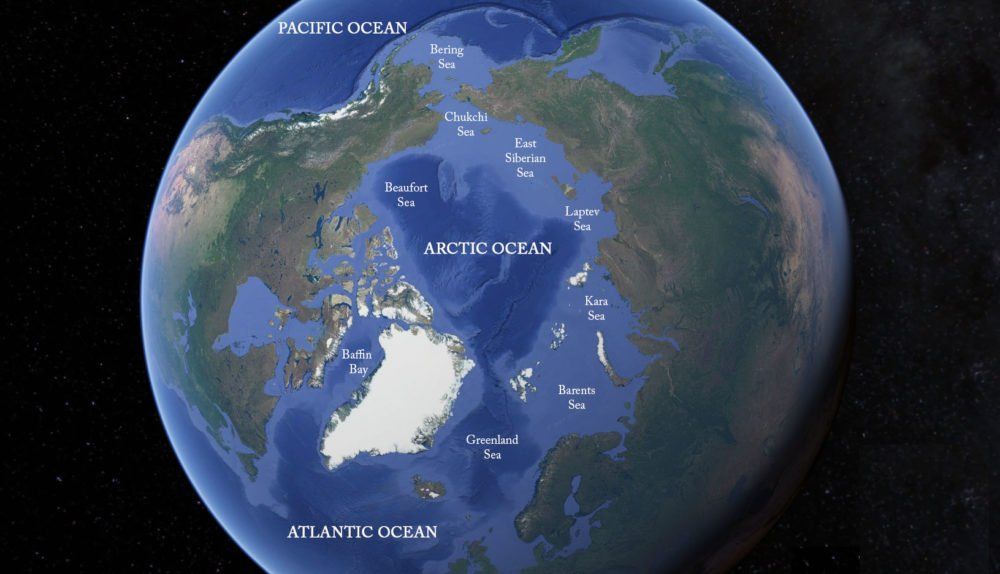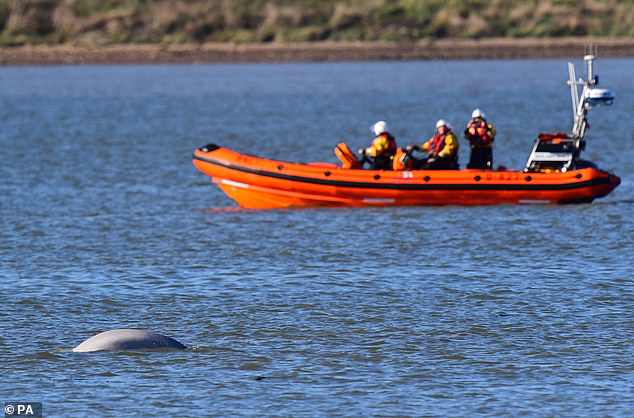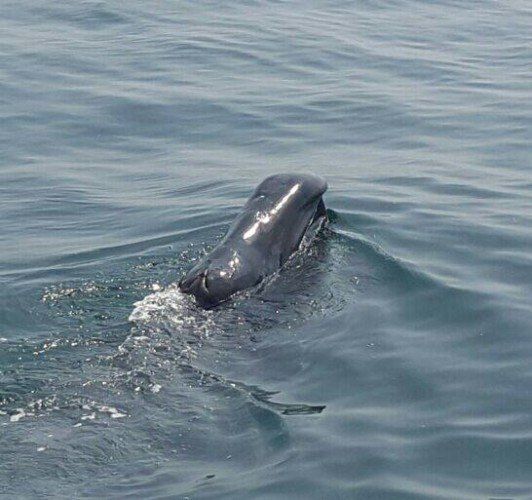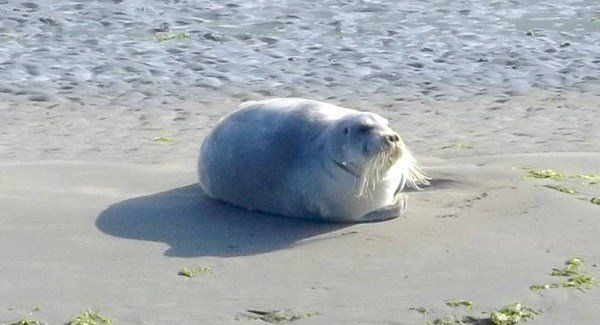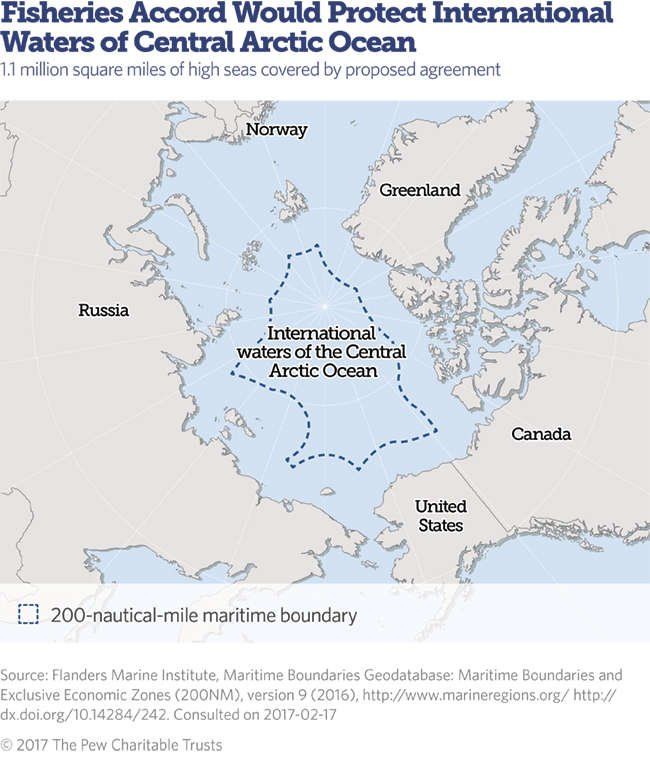Arctic Species Adrift!
The “Atlantification" of the Arctic is now evident as warmer waters stream into an increasingly ice free Arctic Ocean. Everything from phytoplankton to whales are being affected by the upheaval of the sensitive polar environment.
As the Arctic heats up faster than any other region on the planet, once-distinct boundaries between the frigid polar ocean and its warmer, neighboring oceans are beginning to blur, opening the gates to southern waters bearing foreign species, from phytoplankton to whales. The “Atlantification” of the Arctic Ocean is now rapidly advancing. A new studyconcludes that the Arctic Ocean’s cold layering system that blocks Atlantic inflows is breaking down, allowing a deluge of warmer, denser water to flood into the Arctic Basin (Polyakov et al ., 2017).Above Scandinavia, on the Atlantic side of the Arctic Ocean, mackerel, cod, and other fish native to the European coast are migrating through increasingly ice-free waters, heading deeper into the Arctic Basin toward Siberia(Berge et al ., 2015).
In recent years, more and more Arctic marine mammals have been observed in Irish and British waters. In the last 50 years, there has been little over a dozen sightings of Beluga whales ( Delphinapterus leucas ) in Irish waters. The first sighting was in Co. Mayo in 1948, followed by Cork Harbour in 1988. On July 30th 2016 a beluga whale was sighted off the north coast in Co. Antrim.
According to the U.K. SeaWatch Foundation sightings database there has been ten sightings of beluga whales since 1964, with observations most frequently occuring in northern or north-west Scotland or northern England.
The most recent sighting of an "Arctic species adrift" comes from London where a Beluga whale nicknamed "Benny" has taken up residency in theThames estuary near Gravesend, Kent, since the 25th of September 2018.
British Divers Marine Life Rescue (BDMLR) have dropped a hydrophone in the water to try to track the whale. Operations manager Stephen Marsh said "netting Benny to set it free was too high risk and not an option, and experts could only observe and protect". Experts are clear they do not want to put the whale at risk or see it end up in captivity. The area of the Thames estuary where the beluga whale is foraging is a busy shipping channel, however a 100m exclusion zone has been put in place around the whale by the Port London Authority - any boats which get too close to the mammal will get a fine.
Beluga's aren't the only polar cetaceans to visit Irish waters, while on a routine job on Sunday, May 29th 2016, the crew of a pilot boat from Carlingford Lough Pilots Ltd observed, photographed and filmed the a bowhead whale ( Balaena mysticetus ) at the Helly Rocks just outside the Lough Mouth. This was the 25th species of cetacean (whale dolphin or porpoise) recorded for Irish waters. The bowhead whale gets its name from its distinctive bow-shaped skull. It is an immensely stocky animal; for its body length it is believed to be the heaviest of the great whales.
The bowhead whale was estimated to be just over six metres in length, which indicates that it was most likely a juvenile. Fully grown, the animals can reach grow more than 12 metres in length, with females growing larger than males. Bowheads feed on plankton, particularly a variant called Calanus copepods – which are known to be abundant in Irish waters during the summer.
We have also had some arctic phocid visitors. In August 2017, a bearded seal ( Erignathus barbatus ) was recorded by "Shearwater Wildlife Tours" in Timoleague, west Cork. Bearded seals have a distinctive pale pelt and very long whiskers in comparison to the two species of pinnipeds that inhabit Irish waters, the common( Phoca vitulin a ) and the grey seal ( Halichoerus grypus ). Bearded seals are usually found between the far north of Canada, Greenland and the Russian Arctic.
This was the second recorded sighting of this marine mammal species in Ireland, the other being a female in distress who was nursed back to health in Galway in 2002, according to Paul Connaughton, chair of Birdwatch Ireland’s West Cork branch.A bearded seal was re-sighted in early June, 2018 by Willie O'Driscoll in Courtmacsherry Bay. It was first sighted in 2014, and usually stays for four months before heading away at the end of the summer. this is highly unusual as the seal is 5,700 km from it's usual polar habitat.
On the 3rd of October 2018,delegates from nine nations and the European Union (EU) signed a historic agreement to prevent commercial fishing in the central Arctic Ocean for at least 16 years, thus protecting the marine ecosystems of the region – already in dramatic flux due to climate change – from further human-caused stressors.
The agreement will protect 2.8 ml-square-kilometer (1.8-million-square-mile) stretch of ocean that, until recently, was mostly covered by sea ice. Following years of increasing Arctic warming , this area (about the size of the Mediterranean) is now accessible to ships for much of the year, opening it up to potential large-scale fishing for the first time. And these waters are incredibly appealing to the industry seeing as widespread over-harvesting has significantly depleted seafood stocks elsewhere and past studies have shown that fish populations are moving northward as ocean temperatures rise.
Incidence of Arctic species in Irish and U.K. waters highlight the efforts of citizen science and the importance of conservation awareness for long - term monitoring programmes for marine megafauna. If you see a marine mammal or shark species in Irish waters you can contribute to conservation by submitting a sighting record to us via our app "ORCireland Observers" available to download from our website or through an online form on our website. Visit the Home page of www.orcireland.ie for more information. When you download the app get one years free membership and receive a digital copy of two identification guides "Guide to Marine Fauna of Éire" and "Sharks in Irish waters".
© Ocean Research & Conservation Ireland (ORCireland) and www.orcireland.ie , est. 2017. Unauthorized use and/or duplication of this material without express and written permission from this site’s author and/or owner is strictly prohibited. Excerpts and links may be used, provided that full and clear credit is given to Ocean Research & Conservation Ireland and www.orcireland.ie with appropriate and specific direction to the original content.
References:
1. Berger, Joel., AU - Schaller, George B., Cheng, Ellen., Kang, Aili., Krebs, Michael., Li, Lishu., Hebblewhite, Mark (2015).Legacies of Past Exploitation and Climate affect Mammalian Sexes Differently on the Roof of the World - The Case of Wild Yaks. Scientific Reports. 5 - 8676.
2. Polyakov, Igor V., Pnyushkov, Andrey V., Alkire, Matthew B., Ashik, Igor M., Baumann, Till M., , Eddy C., Goszczko, Ilona, John., Ivanov, Vladimir V., Kanzow, Torsten., Krishfield, Richard., Sundfjord, Arild., Morison, James., Rember, Robert (2017). The Greater role for Atlantic inflows on sea-ice loss in the Eurasian Basin of the Arctic Ocean. Science., 285 - 291., 10.1126/science.aai8204.
SHARE THIS ARTICLE






